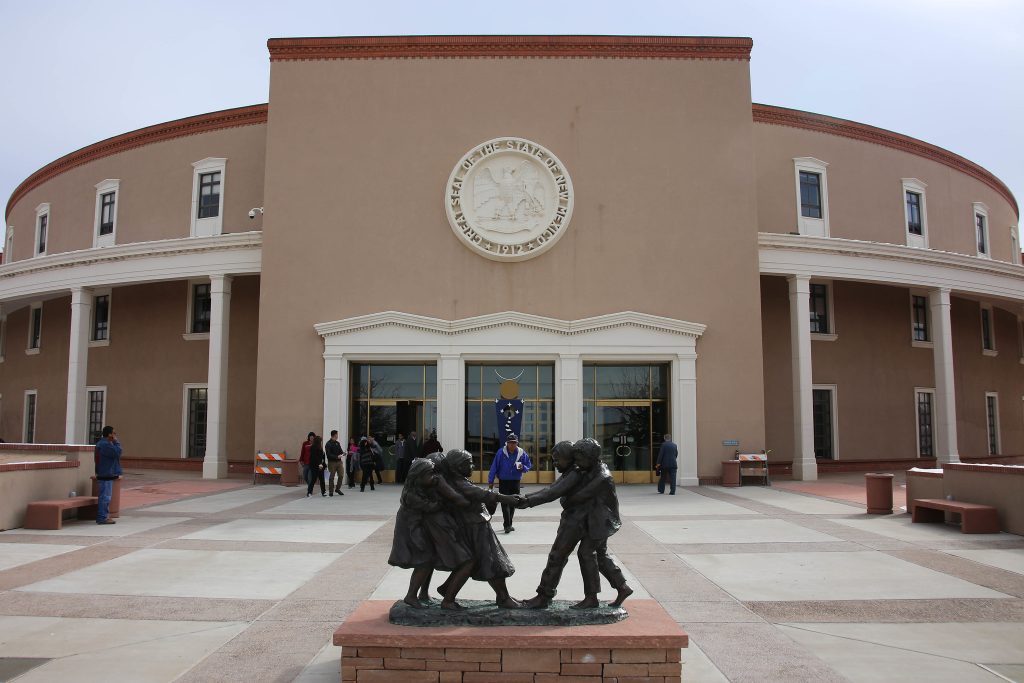
By Kendra Chamberlain
New Mexico Political Report | June 18, 2020
As state legislators convene in Santa Fe for a special session to tackle the budget, environmental groups are asking lawmakers to limit cuts to the state’s environmental regulatory agency budgets to 3 percent.
A group of 28 organizations, ranging from conservation and wildlife advocates to renewable energy proponents, sent a letter to members of the state Senate Finance Committee and the state House Financial Affairs Committee last week.
The New Mexico Environment Department (NMED) and the Energy, Minerals and Natural Resources Department (EMNRD) — the state’s two main environmental regulatory departments — each saw their respective budgets erode during the Susana Martinez administration.
NMED’s general fund was cut by 32 percent between fiscal years (FY) 2012 and 2019, which was the last fiscal year budget passed by the legislature in 2018 before Martinez left office, according to a report released by the New Mexico Wilderness Alliance. EMNRD saw its budget drop roughly 24 percent under the Martinez administration between fiscal years 2012 and 2019.
In Gov. Michelle Lujan Grisham’s first budget proposal for FY2020, NMED’s general fund increased 6 percent compared to FY2019, while EMNRD saw a 9 percent increase in fiscal year 2020 over 2019. The departments saw similar increases in the FY2021 budget, which goes into effect on July 1 and will be amended during the special session due to the COVID-19 caused economic slowdown and dropping oil and gas prices.
“The 2021 budget saw about a 7 percent increase for those agencies from 2020,” said Ben Shelton, policy and political director at Conservation New Mexico, and who coordinated the letter. “What we’re trying to do is hold that reduction in increase as low as possible.”
While the recent budget increases are steps in the right direction, the departments’ budgets are still much lower than they were at the end of Gov. Bill Richardson’s administration in 2011.
“These guys got cuts in the Martinez administration where they got cut below what they needed to do the minimum of their jobs — particularly EMNRD,” Shelton said.
Both departments are suffering from high vacancy rates as a result. NMED has a 19 percent vacancy rate, with only seven inspectors in charge of monitoring 7,700 air emitting sources, two inspectors in charge of monitoring 700 groundwater sources, and seven inspectors for monitoring nearly 3,000 hazardous waste sources.
EMNRD’s Oil Conservation District (OCD), which regulates oil and gas activities in the state, had its budget decline 26 percent under the Martinez administration. The OCD is responsible for oil and gas regulatory activities ranging from permitting new wells, inspecting abandoned wells, ensuring compliance with permits, and enforcing the state’s oil and gas rules.
At present, half of the division’s inspector and compliance officer positions are vacant, according to the report.
Shelton said there are good reasons to preserve environmental regulatory budgets during a time of budget uncertainty. Cuts to regulatory budgets impact human health in the state, especially as key environmental regulations are being rolled back at the federal level, he said.
“People here are really vulnerable. When you are not doing a good job of protecting water, when you’re not doing a good job of protecting air quality, you really are drawing a direct line between the failure to regulate properly, and causing human health impacts,” Shelton said, adding that the COVID-19 pandemic has shed light on the connections between regulatory rollbacks and human health.
“We’re seeing this regulatory downfall for the last ten years impact human health at a time when we’re dealing with a respiratory disease crisis,” he said.
There are also economic reasons to keep environmental regulatory budgets intact. Shelton pointed to the potential millions of dollars in state revenue that is lost each year to methane flaring.
“When you are not regulating effectively, it costs you money. Regulation and having effective monitoring and environmental control actually makes really good fiscal sense. It’s a good investment,” he said.
This article originally appeared in the New Mexico Political Report.

